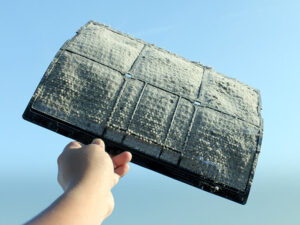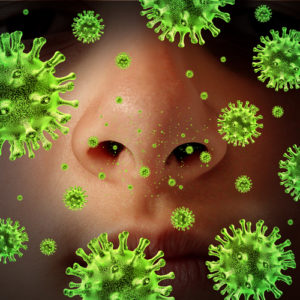IAQ 101: How Indoor Air Can Adversely Affect Your Household
Indoor air quality is a hot topic for a reason. It is now known that the air inside homes and buildings is often far worse than outside air. The air you breathe in your Sarasota home can cause serious health issues if you aren’t diligent about removing as many toxins as possible. What’s more, some contaminants that are bad for your health can also cause damage to your home. Manage indoor air quality by taking necessary and effective steps to keep your home clean today.
Negative Effects of Poor Indoor Air Quality
Health Consequences
Most people spend more time at home than any other place, so it’s easy to see how such regular exposure to poor indoor air quality can start to take a toll. Since there are many potential irritants in a home, it is difficult to generalize the negative health effects that can occur. A person’s age, overall health, the pollutants in the air, and the length of exposure, are some of biggest factors that determine what complications may occur. The impact can be immediate or long-term.
- Immediate effects: Headaches, fatigue, irritation of the eyes, throat and nose, and other flu-like symptoms are among the immediate effects you may experience after one or multiple instances of exposure. Many symptoms can begin shortly after exposure. Most immediate effects can be treated, and often only require the removal of the pollutant.
- Long-term effects: Frequent exposure to some pollutants can result in even more serious issues in certain people. These effects can severely lower your quality of life and can even lead to death. Cancer, heart disease, and some respiratory diseases are among such long-term effects.
Home Damage
In addition to health consequences, bad air can damage your home and some of its contents. For, example, high humidity levels can lead to mold growth which can degrade the structure of your home. Or if your air filter gets clogged with dirt and debris, air flow becomes restricted and your HVAC system is forced to work harder to try and compensate. This can cause breakdowns and early system failure. It also means energy is being unnecessarily wasted, which results in higher utility costs.
Tips for Improving Your Indoor Air Quality
The following tips are simple ways you can clean up the air in your home:
- Clean your home with fragrance-free products or those labeled “low VOC” or “no VOC”.
- Dust the surface areas of your house regularly with a damp cloth rather than a dry duster, as the latter just wafts pollutants into your breathing space.
- Vacuum thoroughly throughout your home twice weekly to prevent the buildup of dust, pet dander, pollen, and other contaminants.
- Make sure pets stay out of the bedrooms of those with allergies. You should also have pets groomed daily outside and bathed once every week, ideally by someone who isn’t sensitive.
- Insist on making your home a smoke-free zone, as second-hand smoke can lead to serious complications, including early death.
- Use exhaust fans or open windows when taking a shower to help keep humidity levels in check. Doing this when cooking will also help with humidity and can lower the amount of harmful gases produced when using a natural gas or propane stove.
- Use a HEPA air filter to make your AC an even more effective cleaner. Whole-house or room air cleaners may also help remove pollutants from your breathing space.
- Ventilate your home when needed. If possible, install trickle vents over your existing windows. This is one of the best ways to ventilate your home – the vents let fresh air into your home while delivering contaminants from inside to the outdoors. Open windows when outdoor conditions permit it.
- Keep your humidity levels (which should stay between 30 and 50 percent) in check at all times. High humidity results in the development of mold and makes your home stuffy and uncomfortable. Low humidity makes the air dry and causes itchy, dry skin and sore throat, for example.
- Put allergen impermeable or plastic zip-up covers on your pillows and mattresses and clean your bedding in hot water once a week to keep out dust mites.
For more information or tips on improving indoor air quality, please feel free to call All American Heating & Cooling at (941) 451-5228. Our indoor air quality solutions will help you to keep your home comfortable and safe.
Image Provided by Shutterstock.com
You May Also Like

3 Dangers of Skipping Fall Heat Pump Maintenance in Parrish, FL
As you transition from the scorching heat of summer into the slightly more comfortable fall in Parrish, FL, you’ll need to make… Continue Reading 3 Dangers of Skipping Fall Heat Pump Maintenance in Parrish, FL…

Why Does My Heat Pump Turn On and Off So Often?
Heat pumps take at least 10 minutes to cool the average home in Punta Gorda, FL. Anything shorter than that should be… Continue Reading Why Does My Heat Pump Turn On and Off So Often?…

Why Does My Heat Pump Blow Hot Air in Cooling Mode?
It’s frustrating when you set your heat pump to cool your home in Sarasota, FL, and only warm or hot air comes… Continue Reading Why Does My Heat Pump Blow Hot Air in Cooling Mode?…

